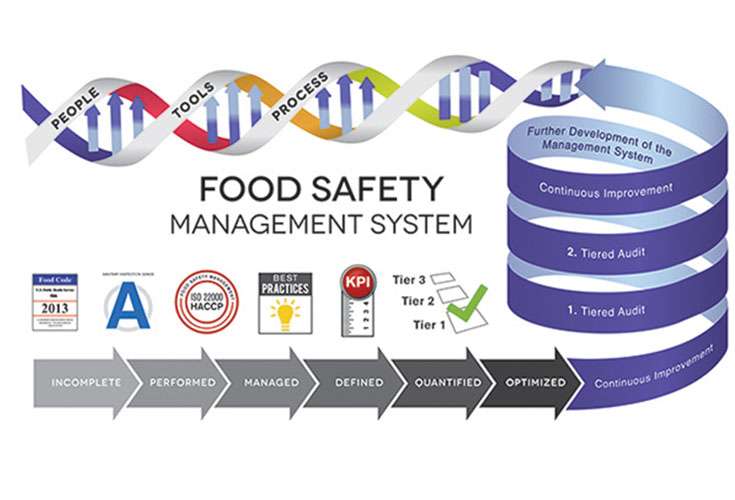Food Safety Management System
Introduction:
A FSMS is a systematic approach to controlling food safety hazards within a food business in order to ensure that food is safe to eat. All businesses are required to put in place, implement and maintain a FSMS based on the principles of Hazard Analysis Critical Control Point (HACCP).
Learning Objectives:
By the end of the course delegate will be able to:
- Understand The purpose of FSMS
- Apply the requirements of ISO 22000
- Develop HACCP Plan
- Plan and conduct an audit
- Report an audit
- Undertake audit follow-up activities
- Prepare and advice their organization before third party assessment.
- Contribute to the development and improvement of their organization’s Food Safety management system.

Course Techniques
We aim to be the most competitive and the most productive service organization in the world. Our core competencies in Consultancy, Education, and Trainings are being continuously improved to be best-in-class. They are at the heart of what we are.
Key Contents
This course provides an understanding and knowledge of ISO 22000 / HACCP and ISO 19011.
- Food Safety Management System
- HACCP
- The Audit Process
- Auditor and Lead Auditor Activities
- Audit Skills
- Team Leading
Prior Knowledge Requirement
This course is designed for experienced food safety professionals seeking an understanding of the management systems approach to food safety and the skills required auditing effectively against food safety management systems standards. It is not intended to be an implementer’s course, or one that will create an expert in food safety legislation, or one that will train to an acceptable level a student with no prior knowledge of the standard or of the food industry. Therefore, prior to attending these training course students must:
- Have experience of working within the food chain preferably with an understanding of implementing or operating a management system. Food Safety Management System
- Have an understanding of relevant key food safety legislation (this may be specific to their food industry context and location)
- Have an understanding of prerequisite programs.
- Have an understanding of Good Practice guides for Agriculture (GAP), Veterinary (GVP), Manufacturing (GMP), Hygiene (GHP), Production (GPP), Distribution (GDP) and/or Trading (GTP) depending on the segment of the food chain in which the student operates.
- Have an understanding of the principles of HACCP as defined by the Codex Alimentarius